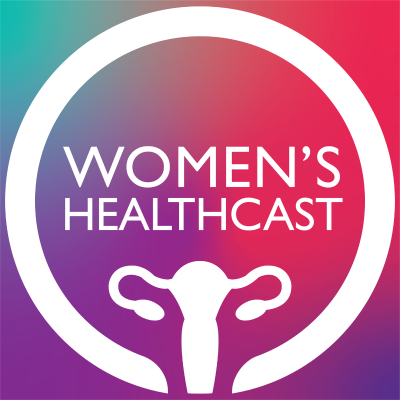
Women’s Healthcast
Englisch
Kostenlos bei Podimo
Kostenlos hören bei Podimo
Starte jetzt und verbinde dich mit deinen Lieblingspodcaster*innen
- Vertraut von über 1 Mio. deutschen Hörer*innen
- Über 1.000 lokale Podcasts und Shows – nur bei Podimo
- Keine Zahlung nötig
Mehr Women’s Healthcast
The latest on ob-gyn health issues and innovations, from the University of Wisconsin-Madison Department of Obstetrics & Gynecology. obgyn.wisc.edu
Alle Folgen
128 FolgenHealth and Aging: Weight and Wellness, Part 2
Over the last few months, the Women’s Healthcast has focused on how aging can affect our health. For the last two episodes in the Health and Aging series, we consider the impact of aging on metabolism – including societal implications. In Weight and Wellness, Part 1 [https://womenshealthcast.podbean.com/e/aging-weight-1/], Dr. Kate Sample [https://www.obgyn.wisc.edu/directory/profile/84564079] joined us to talk about how different life stages can affect body composition. In the second half of our conversation, Dr. Sample discusses additional options for improving health with age, the potential impacts of GLP-1 medications, and how to tell whether so-called “simple” solutions on social media are actually effective. Have a suggestion for a future episode? Let us know what health issues you'd like to learn about here! https://forms.gle/XaoArBtnxfHxA4Up7 [https://forms.gle/XaoArBtnxfHxA4Up7]
Health and Aging: Weight and Wellness, Part 1
Over the last few months, the Women’s Healthcast has focused on how aging can affect our health. For the last two episodes in the Health and Aging series, we consider the impact of aging on metabolism – including societal implications. Dr. Kate Sample [https://www.obgyn.wisc.edu/directory/profile/84564079] joined us to share her insight into changes in body composition that come with age. Dr. Sample is a clinical associate professor in the University of Wisconsin Department of Obstetrics and Gynecology. In part one of this interview, she talked about natural changes in weight, muscle mass, and bone density that come with age, the effects of life stages such as pregnancy and menopause on metabolism, as well as how hormonal changes affect our bodies. Have a suggestion for a future episode? Let us know what health issues you'd like to learn about here! https://forms.gle/XaoArBtnxfHxA4Up7 [https://forms.gle/XaoArBtnxfHxA4Up7]
Health and Aging: Protect Your Pelvic Floor
For the last few months, the Women’s Healthcast has been taking a look at health and aging, covering everything from perimenopause [https://womenshealthcast.podbean.com/e/aging-perimenopause/] to sex [https://womenshealthcast.podbean.com/e/aging-sex/] to heart health [https://womenshealthcast.podbean.com/e/aging-heart/]. In our second-to-last episode of the Health and Aging series, we’ll focus on an all-important but sometimes under-appreciated group of muscles in the body: the pelvic floor. This complex basket of muscles and connective tissue sits under the pelvis, supporting our organs and helping manage important bodily functions like going to the bathroom, having sex, giving birth, even standing and sitting. Repeated stress, pregnancy and birth, hormone changes, and more can all affect how well our pelvic floor functions. Maureen Sheetz [https://www.obgyn.wisc.edu/directory/profile/2044109096] is a nurse practitioner in the Division of Urogynecology and Reconstructive Pelvic Surgery in the University of Wisconsin Department of Obstetrics and Gynecology. Maureen joined this episode of the Women’s Healthcast to talk about how to tell if you’re experiencing common pelvic floor issues like incontinence and pelvic organ prolapse, the range of treatment options available for these conditions, and how to protect our pelvic floor health as we age. Have a suggestion for a future episode? Let us know what health issues you'd like to learn about here! https://forms.gle/XaoArBtnxfHxA4Up7 [https://forms.gle/XaoArBtnxfHxA4Up7]
Health and Aging: Heart Health
Cardiovascular disease – things like heart disease and high blood pressure – can have huge impacts on our overall health. For women in particular, life events like pregnancy and menopause can raise our risk of cardiovascular disease. Dr. Anupama Joseph [https://www.medicine.wisc.edu/directory/joseph_anupama] joined this episode of the Women’s Healthcast to talk about heart health and aging. Dr. Joseph is an assistant professor of cardiovascular medicine in the University of Wisconsin Department of Medicine. She talked about how to recognize common signs and symptoms of cardiovascular disease and what we need to know about improving our heart health. Let us know what aging-related topics you want to know more about in this survey: https://forms.gle/XaoArBtnxfHxA4Up7 [https://forms.gle/XaoArBtnxfHxA4Up7]
Health and Aging: Let’s Talk About Sex, Part 2
A lot about our lives can change as we get older, and that includes our sex lives. Our last episode covered some of the physical changes that can impact sex as we age. For this episode, Madelyn Esposito [https://www.uwhealth.org/providers/madelyn-g-esposito-lpc] joins the Women’s Healthcast to talk about the mental and emotional aspects of sex and aging. Madelyn is a licensed sex therapist and program manager of UW Health’s Sexual Health Clinic. She answered questions about what sex therapy is, common changes to mental and emotional health that impact sex, and what she wishes more people knew about sex and aging. Let us know what aging-related topics you want to know more about in this survey: https://forms.gle/XaoArBtnxfHxA4Up7 [https://forms.gle/XaoArBtnxfHxA4Up7]















































